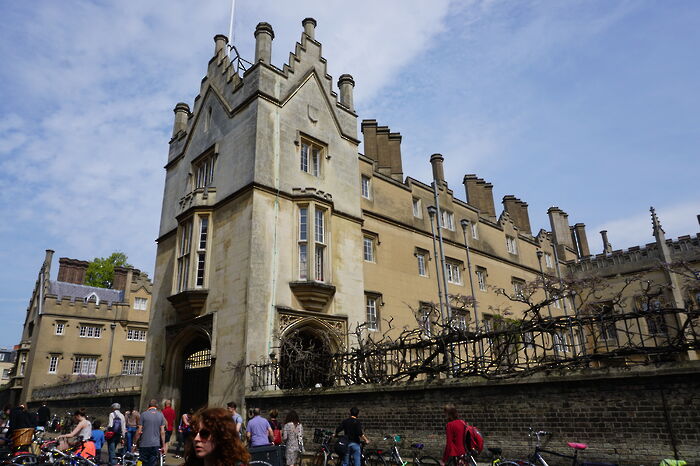Johnson leads push for university free speech
Critics have claimed that concepts like preferred pronouns, microaggressions, safe spaces, no-platforming and trigger warnings are producing a generation of ‘snowflake students’

The government has announced new measures to protect ‘free speech’ at universities, amid concerns that students working to exclude ideas they might find offensive.
Jo Johnson, the universities minister, announced on Thursday that new higher education body the Office for Students (OFS) would be conducting a consultation aiming to “ensure students are exposed to a wide range of issues and ideas in a safe environment without fear of censorship, rebuke or reprisal”.
Johnson said he wanted universities “to encourage a culture of openness and debate and ensure that those with different backgrounds or perspectives can flourish in a higher education environment”.
Cambridge has been at the centre of several debates on freedom of speech and student censorship. Recently, the University drew national attention following a decision by The Beard Society, a student group at Peterhouse, to de-invite the activist Linda Bellos after she said she would question transgender politics.
Critics have claimed that concepts like preferred pronouns, microaggressions, safe spaces, no-platforming and trigger warnings are producing a generation of ‘snowflake students’, who refuse to acknowledge arguments that go against their beliefs.
Johnson told The Times that universities could be “fined, suspended or ultimately deregistered” if they failed to protect freedom of speech.
Student groups within Cambridge reacted strongly against Johnson’s comments, accusing him of having double standards for advocating free speech while also spearheading the controversial Prevent program. Prevent, which is part of the government’s counter-terrorism strategy, includes measures which compel universities to vet speakers who could be deemed dangerous. It has been criticised by campaigners, who claim it is overwhelming used to target black and Muslim students and speakers.
“Johnson's comments are part an alarming tradition of high profile individuals positioning safe spaces as a threat whilst ignoring the actual suppression of speech under things like the Prevent duty,” said Daisy Eyre, CUSU president, and Lola Olufemi, CUSU women’s officer, in a joint statement. They said that while marginalised students are being “criminalised and surveilled” under the policy, “time is wasted pushing a narrative that students are 'snowflakes' or afraid of rigorous intellectual debate by creating safer spaces to meet, organise and provide solidarity to one another.”
They added: “We understand that who we give platforms to reflects our values as a students union. We therefore protect the right of students (especially autonomous campaigns) to self-organise in ways that enable the crucial work they do to continue. Cambridge is not at risk of shutting down legitimate free speech nor do we think there is a 'culture' of no platforming.”
Cambridge’s LGBT+ campaign echoed Eyre and Olufemi’s comments, saying: “There is a certain hypocrisy to Jo Johnson's comments, when the government he is part of would – rightfully – prevent Islamists and neo-Nazis from speaking in universities.”
“CUSU LGBT+ is in favour of defending free speech,” they said, “as it is a principle that allows for the expression of often silenced voices. Nevertheless, Cambridge and its colleges have other responsibilities, especially that of providing a safe and welcoming environment to their students. There is a clear difference to be drawn between providing an open environment for debate and allowing hate speech in universities."
The University of Cambridge’s official statement on free speech says: “The University fosters an environment in which all of its staff and students can participate fully in University life, and feel able to question and test received wisdom, and to express new ideas and controversial or unpopular opinions, without fear of disrespect or discrimination.”












